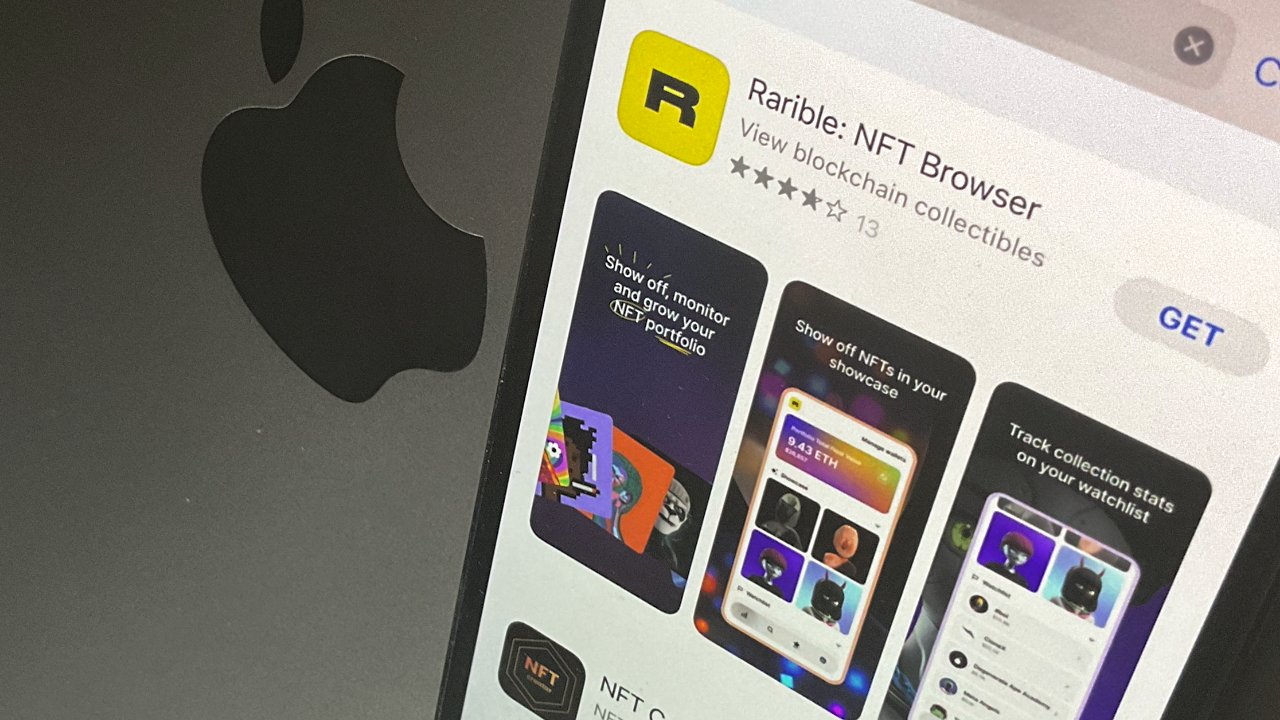AppleInsider may earn an affiliate commission on purchases made through links on our site.
Startup and trading NFT firms say they ignore the App Store because Apple’s rules, and 30% commission, make it untenable for them.
The market value of NFTs — non-fungible token firms — has been affected by the volatile value of cryptocurrency. So startup and trading companies in the field would reportedly love to be on the App Store, and so able to reach a bigger audience — but most won’t do it.
According to The Information, Apple is now insisting that its regular 30% commission from in-app purchases be also paid on all trades. This has specifically stopped NFT startup Magic Eden from ever offering trading on its app, even after Apple reduced its commission to 15% for firms earning under $1 million annually.
In the case of NFT trading between users, a typical marketplace takes just 2% to 3% of the transaction. Under Apple’s rules, companies would lose heavily on every deal.
However, it’s not just the commission that’s an issue. The Information says that a number of NFT firms have the issue that App Store in-app purchasing must be done in dollars, or another physically-backed currency. It does not accept cryptocurrency.
Since the cryptocurrency exchange rate varies enormously, developers can’t just set an equivalent in dollars.
Arthur Sabintsev from blockchain company Pocket Network, told the publication that this issue “makes it really hard to price it because you have to program all these values in dynamically.”
Sabintsev said that he has advised one of his clients to allow users to buy in-app currency in the same way that some games do. They buy the currency, and that transaction nets Apple 30%, then they spend it in-app on deals.
Specifically, selling NFTs within apps is particularly problematic.
“It feels like the position is that Apple doesn’t really want [App Store] users to be able to purchase or sell NFTs,” said Alexei Falin, CEO of NFT startup marketplace Rarible. “[It’s] almost impossible because it’s fixed subscriptions or fixed prices.”
Perhaps backing up that opinion is how Apple reportedly delays approving NFT and crypto apps for the App Store. According to Falin, it took several months to get the Rarible app onto the App Store, as compared to mere days for the Google Play Store.
This does mean that such apps are getting on to the store, but it seems they are generally acting as showcases for their services. Actual sales or transactions are being routed out to a browser site, rather than being done-in app.
Apple reportedly did not specifically address the issue of NFT app delays with The Information, and instead said its 500 reviewers check 90% of apps within 24 hours. Apple also declined to comment on the other NFT criticisms, instead directing the publication to the App Store’s general rules.





